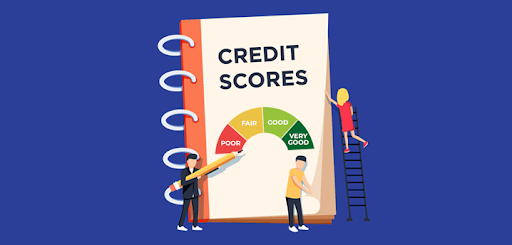In the world of personal and business finance, maintaining a healthy credit report is paramount. A strong credit report opens doors to favorable interest rates, loan approvals, and financial opportunities. However, if your credit report has taken a hit, whether due to missed payments, high credit utilization, or other factors, repairing it becomes essential. To guide you through the process effectively, here’s a comprehensive list of do’s and don’ts for credit report repair.
Do’s:
- Review Your Credit Report Regularly: Start your credit repair journey by obtaining copies of your credit reports from all three major credit bureaus – Equifax, Experian, and TransUnion. Review each report carefully for inaccuracies, such as erroneous late payments, accounts that don’t belong to you, or outdated information.
- Dispute Errors Promptly: If you spot inaccuracies on your credit report, dispute them promptly with the credit bureaus. Provide documentation to support your claims and follow up to ensure the errors are corrected. This proactive approach can significantly improve your credit score.
- Pay Your Bills on Time: Timely payment of bills is crucial for maintaining a positive credit history. Set up automatic payments or reminders to ensure you never miss a due date. Even one late payment can negatively impact your credit score, so make punctual payments a priority.
- Reduce Credit Utilization: Aim to keep your credit card balances low relative to your credit limits. High credit utilization can signal financial distress to lenders and lower your credit score. Pay down existing balances and avoid maxing out your credit cards to improve your credit utilization ratio.
- Diversify Your Credit Mix: A healthy credit mix can boost your credit score. Consider diversifying your credit portfolio by adding installment loans, such as auto loans or personal loans, to complement revolving credit accounts like credit cards. This demonstrates responsible credit management to potential creditors.
Don’ts:
- Close Old Accounts: While it may be tempting to close old or unused credit accounts, doing so can harm your credit score. Length of credit history is a crucial factor in credit scoring models, so keeping older accounts open can positively impact your creditworthiness.
- Apply for New Credit Unnecessarily: Each time you apply for new credit, a hard inquiry is recorded on your credit report, which can temporarily lower your credit score. Avoid unnecessary credit inquiries, especially if you’re actively working on credit repair. Focus on improving your existing credit profile before seeking new credit.
- Neglect Your Payment Obligations: Ignoring your financial obligations won’t make them disappear – it will only exacerbate the problem. Prioritize paying your bills on time, even if you can only afford the minimum payment. Defaulting on loans or accounts can have severe consequences for your credit health.
- Dispute Accurate Information: While it’s crucial to dispute inaccuracies on your credit report, attempting to challenge accurate information is futile and can waste time and resources. Focus your efforts on addressing genuine errors rather than disputing legitimate negative information.
- Credit Repair Scams: Beware of companies or individuals promising to “fix” your credit overnight for a fee. Legitimate credit report repair takes time, effort, and a systematic approach. Avoid falling victim to credit repair scams by researching reputable credit counseling agencies or seeking guidance from financial professionals.
Business Credit Building Program:
In addition to repairing personal credit, entrepreneurs and small business owners can benefit from participating in a business credit building program. These programs offer guidance on establishing and maintaining strong business credit profiles, separate from personal credit. By following the principles of responsible credit management and leveraging business credit accounts effectively, you can strengthen your company’s financial standing and unlock access to better financing options.
In a Nutshell:
Credit report repair requires diligence, patience, and adherence to best practices. By following the do’s and don’ts outlined above, you can take proactive steps towards improving your creditworthiness and achieving your financial goals. Remember, maintaining good credit is not only essential for accessing favorable lending terms but also for securing your financial future. Start implementing these strategies today to pave the way for a brighter tomorrow.

Most Commented Posts